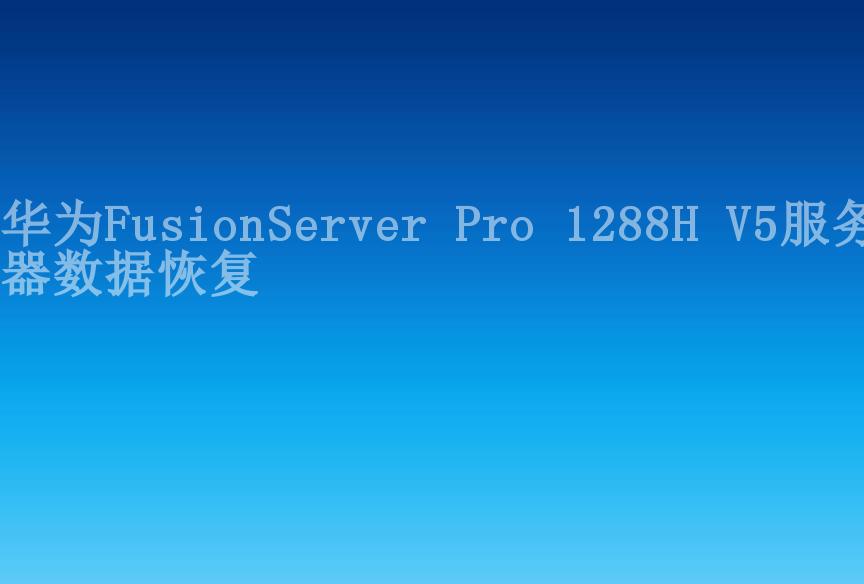三沙数据备份公司,三沙数据容灾方案企业 (解决方法与步骤)
下面内容仅为某些场景参考,为稳妥起见请先联系上面的专业技术工程师,具体环境具体分析。
2024-02-01 09:40 123
Data Backup and Disaster Recovery Solutions for Enterprises in Sansha
1. Introduction Sansha, a city in Hainan province of China, has a diverse range of enterprise businesses that heavily rely on data for their operations. As data plays a crucial role in the success of enterprises, it is essential to have robust data backup and disaster recovery solutions in place to ensure business continuity and protect against data loss. This article will explore the importance of data backup, the need for disaster recovery solutions, and the specific challenges and solutions relevant to enterprises in Sansha.
2. Importance of Data Backup In today's digital age, data is considered the lifeblood of any enterprise. It encompasses critical information such as customer records, financial transactions, operational data, and intellectual property. Data loss can occur due to various reasons such as hardware failure, software corruption, hacking, natural disasters, or human error. Without proper data backup measures, a single event of data loss can have severe consequences for an enterprise, including financial losses, damage to reputation, and legal implications. Therefore, implementing a comprehensive data backup strategy is crucial for enterprises in Sansha to protect their valuable business assets.
3. Impact of Data Loss In the absence of a robust data backup system, enterprises in Sansha may face several adverse effects in the event of data loss. For example, a manufacturing company may lose critical production data, leading to disruptions in the manufacturing process and delayed orders. Similarly, a financial institution could encounter compliance issues and customer dissatisfaction if customer data is compromised. Moreover, the loss of intellectual property or research data can significantly hinder innovation and business growth. Thus, data loss can have far-reaching implications for enterprises, highlighting the urgent need for effective data backup solutions.
4. Data Backup Priority Areas When it comes to data backup for enterprises in Sansha, certain priority areas need to be addressed. These may include:
a. Customer Data: Protection of customer information is paramount for enterprises, especially in industries such as finance, healthcare, and e-commerce. Secure and regular backup of customer data is essential to maintain trust and comply with data protection regulations.
b. Operational Data: Data related to day-to-day operations, including inventory, sales, and logistics, should be backed up to ensure uninterrupted business processes.
c. Intellectual Property: Enterprises engaged in research and development activities must safeguard their intellectual property through regular data backup.
d. Compliance Records: For enterprises operating in regulated industries, maintaining backup records to demonstrate compliance with industry standards and government regulations is crucial.

5. Data Backup Solutions and Challenges Implementing an effective data backup solution poses various challenges for enterprises in Sansha. These may include the selection of suitable backup technologies, ensuring data security and integrity, managing large volumes of data, and meeting regulatory requirements. In this context, enterprises can opt for the following data backup solutions:
a. Cloud Backup: Leveraging cloud-based backup services allows enterprises to store data offsite, offering scalability, accessibility, and enhanced security. This approach is particularly beneficial for enterprises with limited on-premises infrastructure.
b. Disk-Based Backup: Utilizing disk-based backup solutions provides fast data recovery and reduces the backup window, making it suitable for enterprises with high data transaction volumes.
c. Data Encryption: Implementing strong encryption techniques ensures that backed-up data remains secure during transmission and storage, safeguarding against unauthorized access.
d. Automated Backup Processes: Employing automated backup tools minimizes the risk of human error and ensures that critical data is consistently and efficiently backed up.
6. Data Backup Workflow in Enterprises The data backup workflow in enterprises generally involves the following steps:
a. Data Assessment: Identifying critical data and determining the backup frequency and retention policies based on the data's importance.
b. Backup Schedule: Establishing a backup schedule that aligns with business operations while minimizing disruption.
c. Data Encryption: Encrypting data before backup to protect it from unauthorized access during transmission and storage.
d. Offsite Storage: Storing backup data at offsite locations to mitigate the risk of on-premises disasters affecting the backup.
e. Backup Testing: Regularly testing the backup systems and processes to validate data recoverability and ensure the readiness of the disaster recovery plan.
7. Hardware and Equipment for Data Backup Enterprises in Sansha may require various hardware and equipment for their data backup and disaster recovery solutions, such as:
a. Storage Devices: Utilizing enterprise-grade storage systems, including disk arrays, tape libraries, and solid-state drives, for storing backup data.
b. Backup Servers: Deploying dedicated backup servers to manage the backup processes and storage infrastructure efficiently.
c. Networking Equipment: Employing high-speed networking equipment to ensure fast and reliable data transfer during backup and recovery operations.
d. Data Encryption Tools: Implementing hardware-based encryption devices for securing backup data during transmission and storage.
8. Data Disaster Recovery In addition to data backup, enterprises in Sansha must have a comprehensive disaster recovery plan in place to minimize the impact of unforeseen events on their operations. This plan should encompass predefined procedures for restoring data, alternative infrastructure arrangements, and regular testing to ensure its effectiveness.
9. Frequently Asked Questions (FAQs)

Q: How often should data backup be conducted? A: The frequency of data backup depends on the criticality of the data. Generally, enterprises should perform daily backups for essential data and ensure that backups are consistent and reliable.
Q: What are the regulatory considerations for data backup in Sansha? A: Enterprises must adhere to relevant data privacy and protection regulations, ensuring that backup processes comply with data retention and security requirements.
Q: What is the role of data backup in cybersecurity? A: Data backup serves as an essential component of cybersecurity by enabling the recovery of data in the event of ransomware attacks, data breaches, or other security incidents.
10. Conclusion In conclusion, the implementation of robust data backup and disaster recovery solutions is of paramount importance for enterprises in Sansha to protect their valuable assets and ensure business continuity. By addressing the challenges associated with data backup, prioritizing critical data areas, and adopting suitable backup technologies, enterprises can mitigate the risks of data loss and confidently navigate unforeseen events. With a proactive approach to data backup and disaster recovery, enterprises in Sansha can safeguard their operations and uphold the trust of their customers and stakeholders.
 先免费咨询下面专家,获得可靠恢复方案;24小时专家:
先免费咨询下面专家,获得可靠恢复方案;24小时专家:










